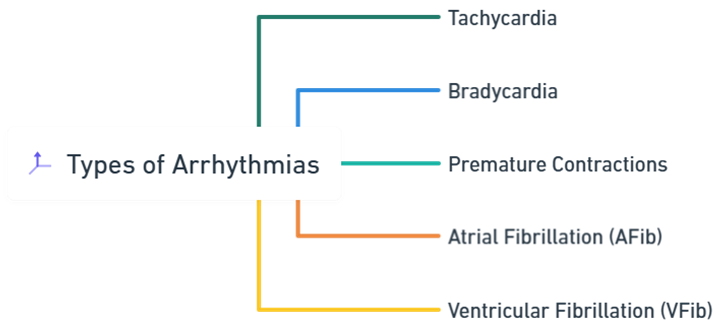Arrhythmia
- BP-S-5-MEDICINAL CHEMISTRY
- Dec 21, 2024
- 1 min read
Definition:
Arrhythmia is an irregular heart rhythm, causing the heart to beat too fast, too slow, or erratically, impacting its blood-pumping efficiency.
Types of Arrhythmias:

Tachycardia: Fast heart rate (>100 bpm), e.g., Atrial fibrillation, Ventricular tachycardia.
Bradycardia: Slow heart rate (<60 bpm), e.g., Sinus bradycardia, Heart block.
Premature Contractions: Early beats (PACs, PVCs).
Atrial Fibrillation (AFib): Irregular, rapid beats from the atria.
Ventricular Fibrillation (VFib): Chaotic, life-threatening rhythm from the ventricles.
Causes:
Coronary artery disease, electrolyte imbalances, high blood pressure, heart valve disorders, congenital defects, lifestyle factors (e.g., caffeine, alcohol), and certain medications.
Symptoms:
Palpitations, dizziness, shortness of breath, chest pain, and fainting (in severe cases).
Diagnosis:
ECG, Holter monitor, event recorder, echocardiogram, and electrophysiological studies.
Treatment:
Lifestyle Modifications: Limit caffeine/alcohol, manage stress, quit smoking.
Medications: Anti-arrhythmias, beta-blockers, calcium channel blockers.
Medical Procedures: Electrical cardioversion, pacemaker, ICD, catheter ablation.
Surgical Interventions: Maze procedure to guide electrical signals.


